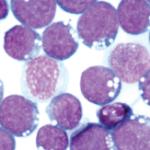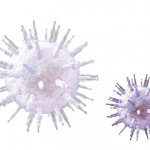
Image Credit: Blackspring/shutterstock.com
SAN FRANCISCO—Two hundred years ago, physicians knew nothing about what caused various forms of arthritis. Today, we have more clues about what may trigger rheumatic diseases, but still can’t pinpoint the culprits that set scores of inflammatory conditions in motion.
Researchers discussed some of the background and recent findings that point to what immunologists call inflammation’s “original sin” at the American College of Rheumatology’s Basic Research Conference on Nov. 6, 2015, the precursor to the 2015 ACR/ARHP Annual Meeting. Infectious agents, such as the widespread Epstein-Barr virus (EBV), and the connections between genes and environmental agents point us in the right direction to find the source of autoantibody responses that lead to inflammation, bone erosion and other hallmarks of rheumatic diseases, the panelists said. Even if we do not yet know the sin or sins that trigger illness, we are moving in the right direction.
“By 2065, will we be able to understand where the origins of rheumatoid arthritis and lupus really come from? I think the likelihood is high,” said John B. Harley, MD, PhD, director of the Center for Autoimmunity Genomics and Etiology at Cincinnati Children’s Hospital. Speaking on possible infectious triggers in rheumatic diseases, Dr. Harley pointed to the currently murky understanding of the exact infections that cause such diseases as septic arthritis or reactive arthritis. When autoimmune diseases have many possible triggering agents, it creates huge problems in developing therapies, he said.
EBV a Likely Culprit
EBV infection often is suspected as a major contributing factor to autoimmune diseases, Dr. Harley said. One of the most common viruses affecting humans and very easily spread, EBV could be the triggering agent in RA or lupus. Although still unclear for RA, it is a likely culprit in lupus, Dr. Harley said. He described seeing an identical twin pushing a sibling into an arthritis clinic, and said, “There has to be some trigger in the environment.”
He cited a 2015 paper published in Arthritis Research & Therapy by researchers at the University of Aberdeen in Scotland that looked at whether prior infection with EBV was more common in RA patients compared with controls, performing a systematic review and meta-analysis of 23 studies that reported RA patients having a prevalence of anti-EBV antibodies in their sera.1
The virus was suspected as a trigger for various reasons, including past studies that showed that RA patients had a 10-fold higher EBV viral load in their peripheral blood. In addition, RA patients spend a high percentage of their T cell response to suppress EBV, and EBV infects plasma cells in the synovium, Dr. Harley said. Yet this study didn’t establish a significant association between RA and serological markers of EBV infection like anti-EBNA-1 IgG or anti-EA.


